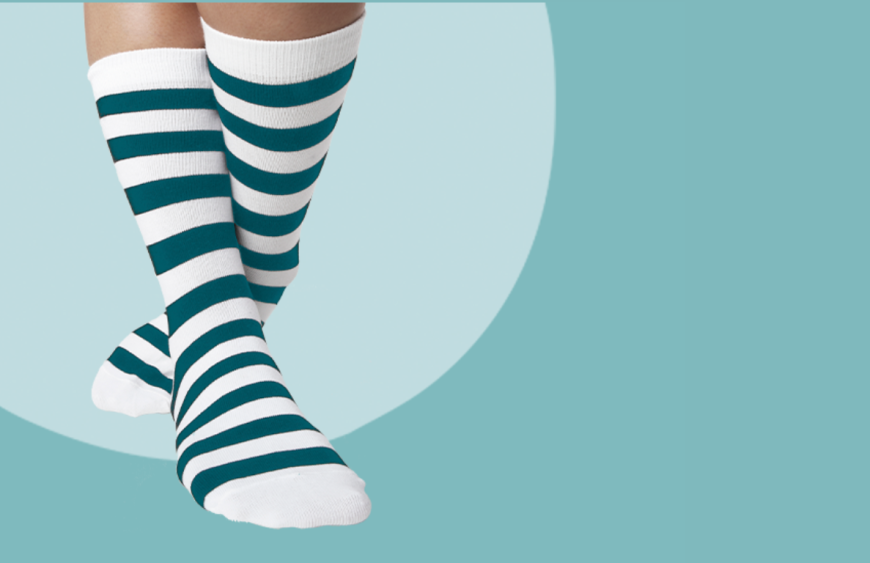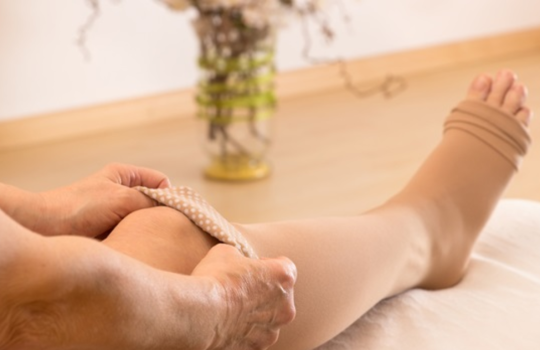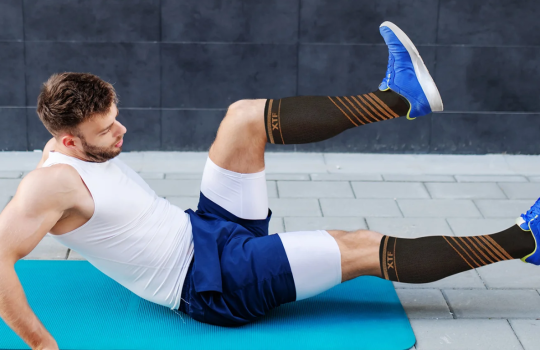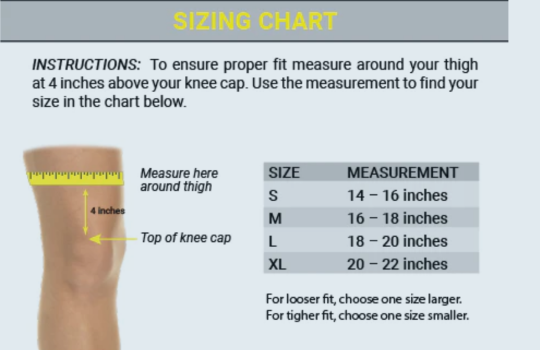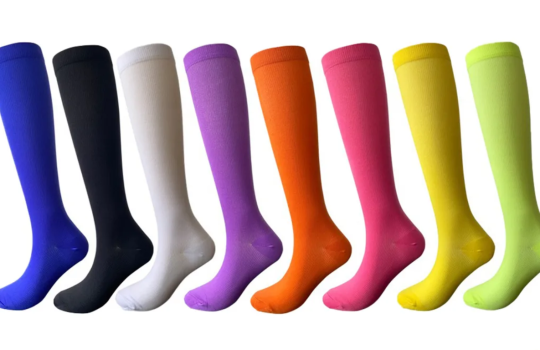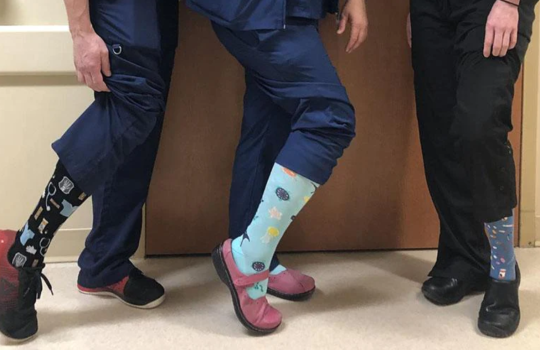Table of Contents
Introduction
Pregnancy is a beautiful journey that comes with its fair share of challenges. Among these challenges, swelling, and discomfort in the legs and feet are common issues many expecting mothers face. To alleviate these concerns, copper compression socks have gained popularity as a soothing solution. This blog will explore the benefits, usage, and considerations of using copper compression socks during pregnancy.
Understanding Copper Compression Socks:
Copper compression socks are specialized clothing items crafted to deliver progressive pressure to the lower extremities. These socks are constructed using a combination of copper-infused fabric, renowned for its antimicrobial and anti-inflammatory capabilities. The stress these socks exert is more pronounced at the ankle area and gradually diminishes as it ascends the leg. This distinctive design facilitates the enhancement of blood circulation and inhibits the accumulation of fluids, a vital aspect in managing swelling during pregnancy.
If you’re interested in learning more about the benefits of copper compression socks, check out our comprehensive guide on copper compression socks. Discover how these socks can provide comfort and support for various needs.
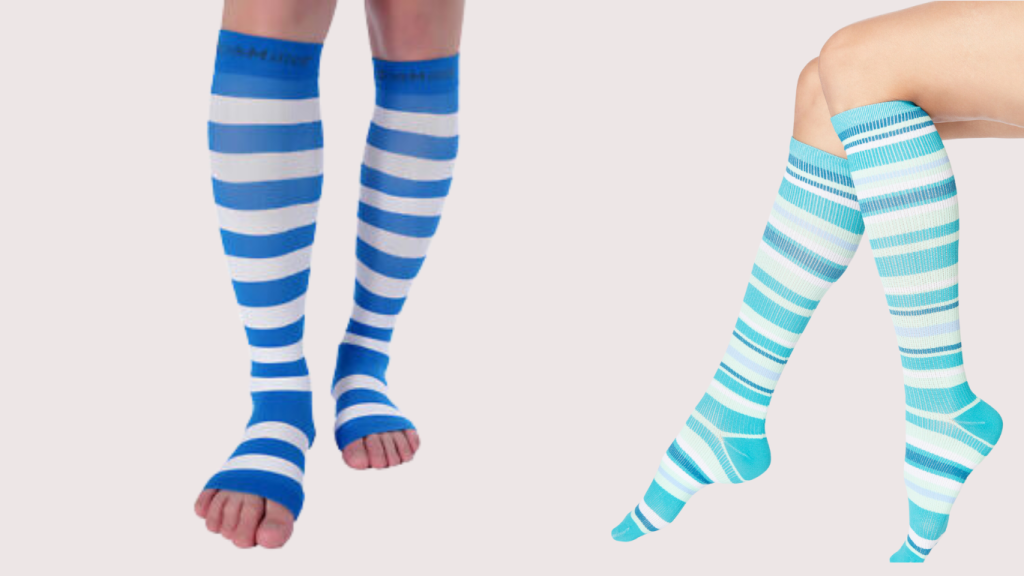
What are Copper compression knee high socks good for?
- Mitigated Swelling: Among the prevailing discomforts encountered during pregnancy, swelling, notably in the legs and feet, ranks high. Copper compression socks operate by enhancing blood circulation and averting the buildup of fluids in the lower limbs, thereby diminishing swelling and associated discomfort.
- Improved Circulation: Pregnancy often puts added pressure on blood vessels due to the growing uterus. Compression socks help to enhance blood circulation by aiding the veins in pumping blood back toward the heart, which can alleviate the risk of varicose veins and blood clots.
- Minimized Fatigue: The added weight of pregnancy can lead to tired and achy legs. Copper compression socks provide gentle pressure that supports muscle recovery and reduces the feeling of fatigue in the legs.
- Support for Achy Joints: Hormonal changes during pregnancy can sometimes lead to joint pain. The compression provided by these socks offers support to joints and muscles, helping to alleviate discomfort.
- Prevention of Deep Vein Thrombosis (DVT): Pregnant women have a slightly increased risk of developing DVT, a condition where blood clots form in deep veins. Copper compression socks can assist in reducing this risk by promoting healthy blood circulation.
Proper Usage
- Consultation with Healthcare Provider: Before incorporating copper compression socks or any medical accessory into your routine during pregnancy, it’s essential to consult your healthcare provider to ensure they are suitable for your individual health needs.
- Choosing the Right Size: Selecting the appropriate size is crucial for maximizing the benefits of compression socks. Measure your leg dimensions accurately to select the right size for a comfortable fit without being too tight.
- Consistent Wear: Wear compression socks consistently throughout the day for optimal results. Put them on in the morning before you get out of bed, as this is when swelling tends to be minimal.
- Removal for Sleep: It’s advisable to remove the socks while sleeping to allow your skin to breathe and recover.
- Allergies: If you have a history of copper or other metal allergies, it’s essential to be cautious and perform a patch test before regular usage. Potential skin sensitivity should be noted. Prolonged interaction with the compression fabric may result in skin irritation, particularly among certain women. If any discomfort or redness arises, it is recommended to halt usage and seek advice from a healthcare expert.
- Maintenance: Proper maintenance of copper compression socks is essential for hygiene and effectiveness. Follow the manufacturer’s guidelines for washing and caring for the socks.
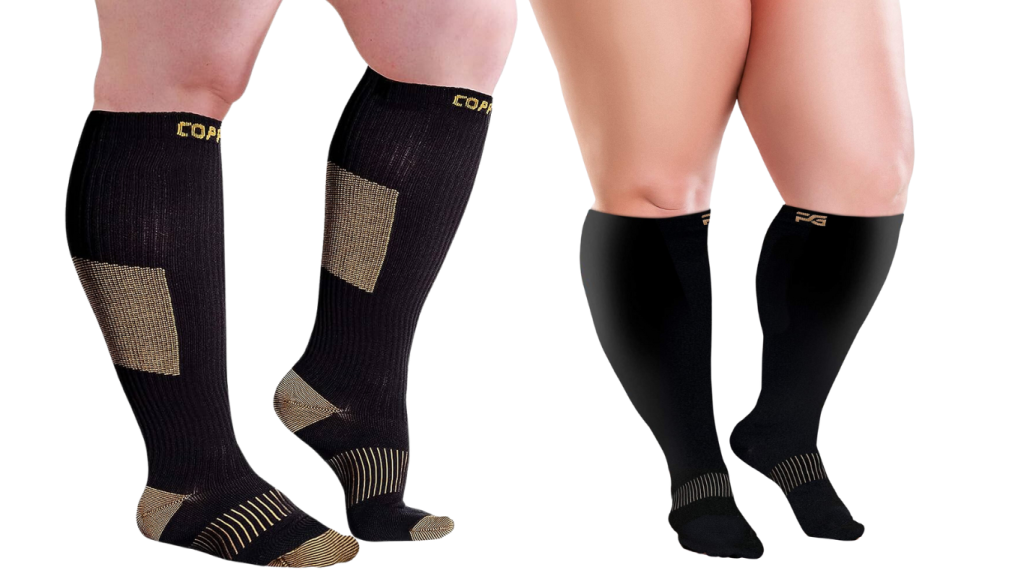
Conclusion:
Copper compression socks offer a practical and beneficial solution for pregnant women with swelling, discomfort, and circulatory challenges. By enhancing blood circulation, reducing swelling, and supporting tired legs, these socks can significantly improve expecting mothers’ overall comfort and well being. However, it’s essential to consult a healthcare provider before using them and ensure proper sizing and usage to reap their full benefits.
FAQs
Do pregnancy compression socks replace medical advice?
While they offer relief, they aren’t substitutes for medical advice. Consult your healthcare provider for serious concerns.
Can I wear pregnancy compression socks if I have a medical condition?
Consult your doctor if you have any underlying medical conditions before using pregnancy compression socks.
Can I wear pregnancy compression socks during air travel?
Wearing them during flights can help prevent swelling and discomfort due to extended sitting.
Do pregnancy compression socks come in different compression levels?
Yes, you can find different compression levels to cater to varying needs and preferences.
Can pregnancy compression socks prevent DVT?
While they improve blood circulation, consult your doctor for specific measures against deep vein thrombosis (DVT).

